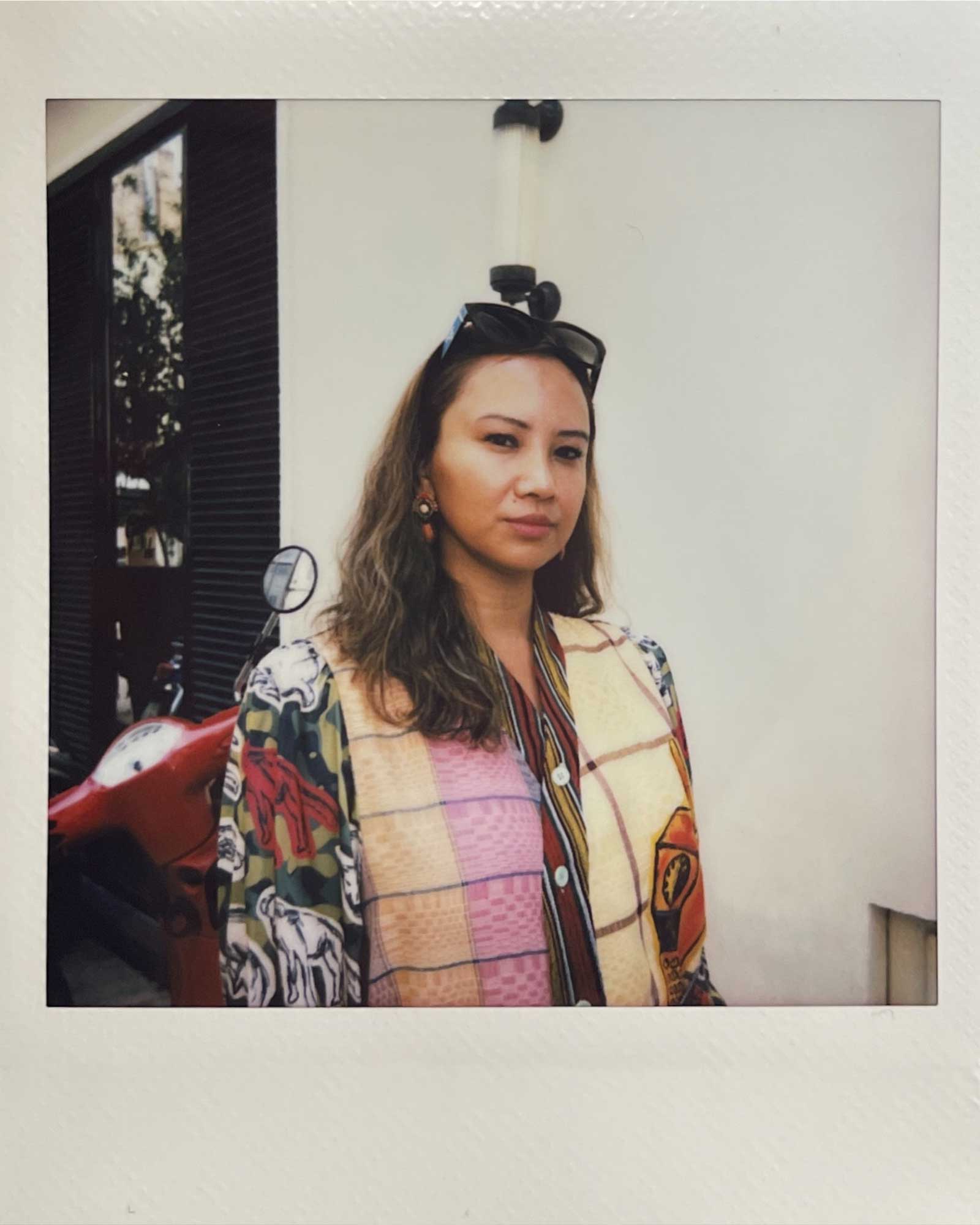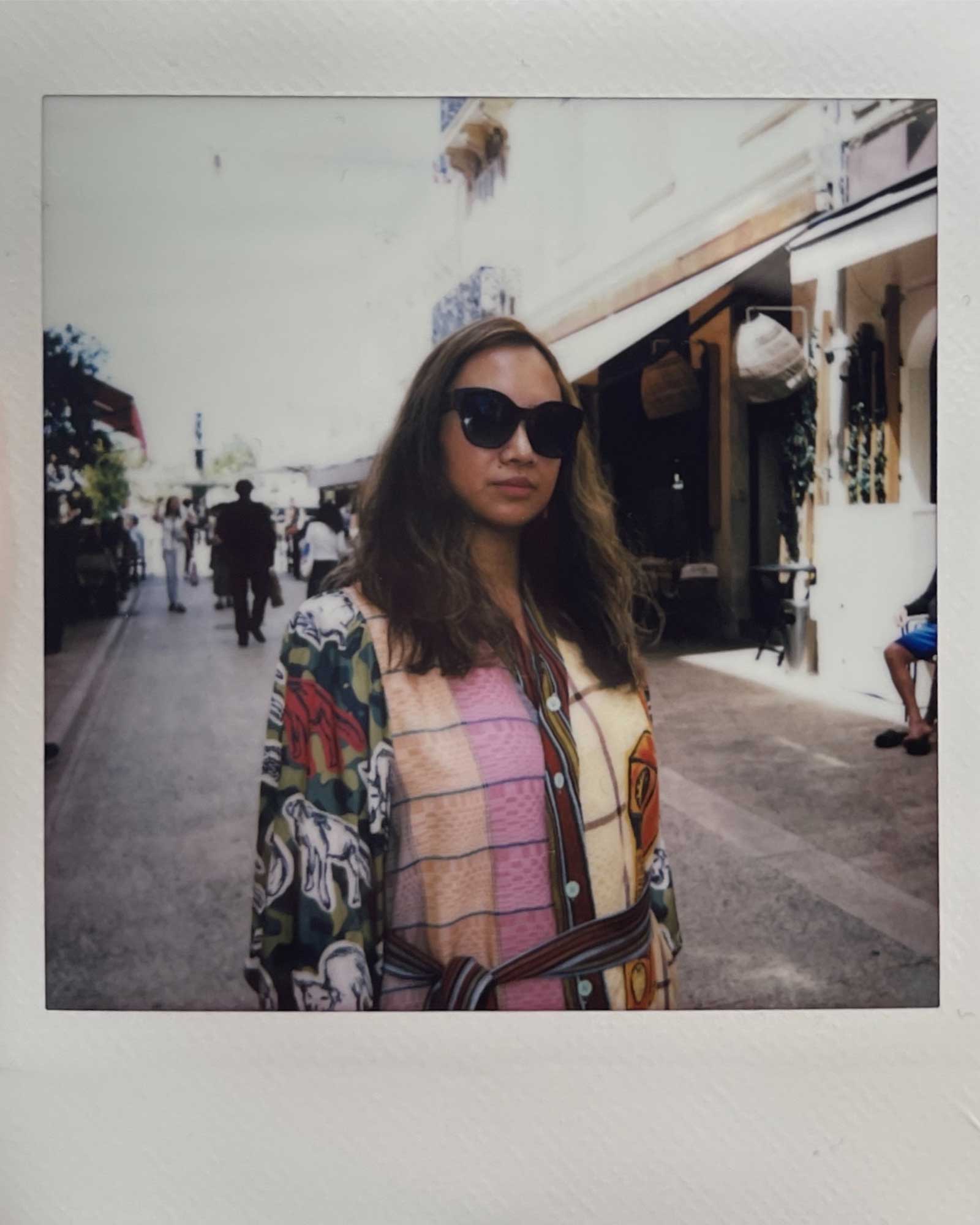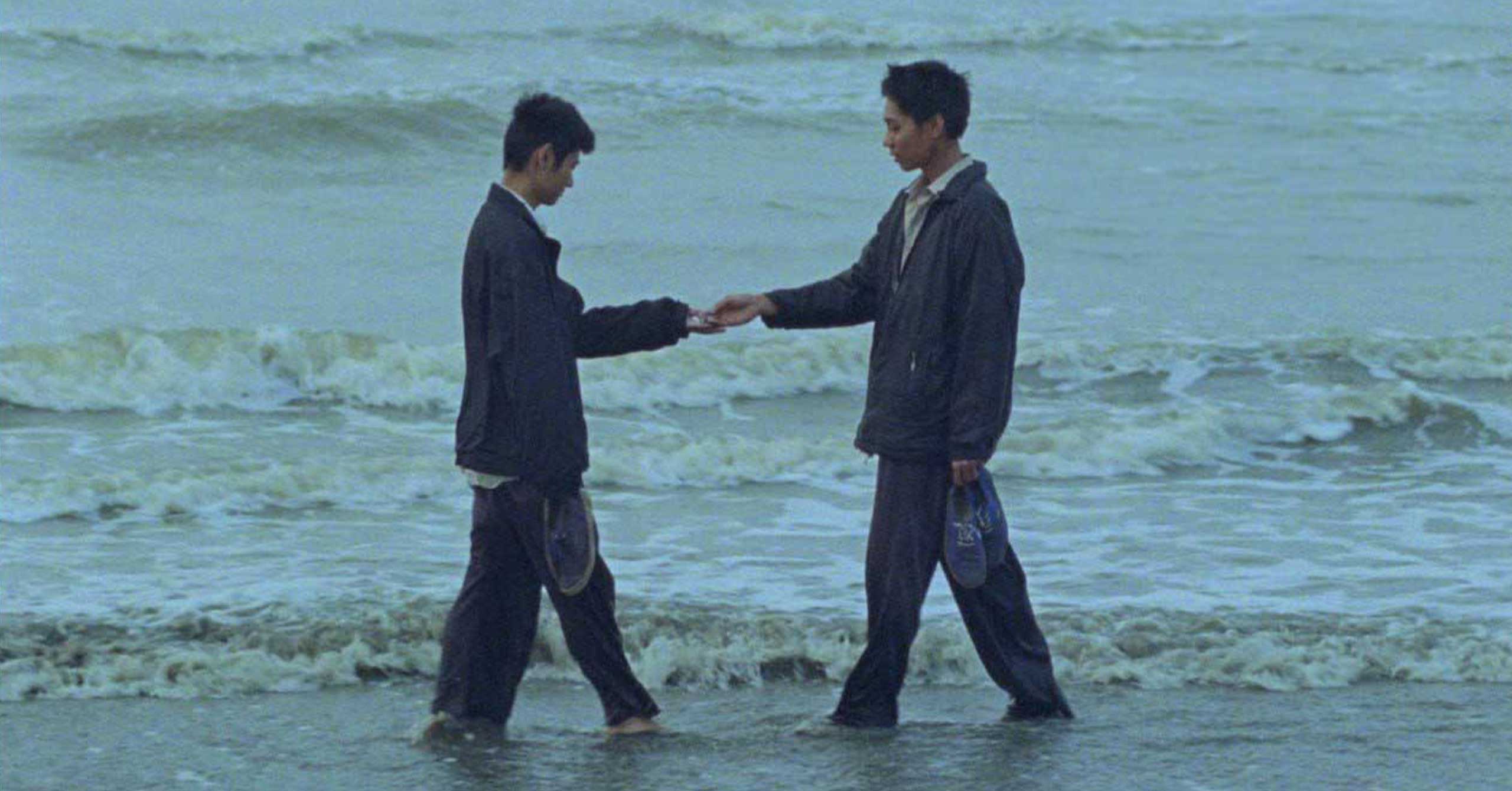A still from ‘Viet and Nam’. Photo courtesy of Bianca Balbuena
A still from ‘Viet and Nam’. Photo courtesy of Bianca Balbuena
For almost a decade, Bianca Balbuena has been paving the way for Filipino filmmakers in the global scene.
Bianca Balbuena recalls her first time at the Venice Film Festival in 2009. She was in her 20s, there to premiere Engkwentro, a film she made with director Pepe Diokno for Cinemalaya. “During our world premiere in Venice with Ang Lee as the head of jury watching, the film stopped 20 minutes before it ended. Black. Everybody left the theater,” she shares. Because of this, the film festival’s jury had to watch the film on a DVD in a small room. “Imagine Ang Lee watching it via DVD. Oh my God, so embarrassing,” she says.
Engkwentro may not have won Cinemalaya in 2009, but the film took home the Venice Film Festival’s Lion of the Future and Orizzonti Award for Best Film. But for Balbuena, the experience is not just about winning; there, she found her passion for being a producer. “I don’t want to direct,” she shares, saying that she was touched by the passionate speeches of other producers at the film festival. “I want to help the director and be part of the whole creative process.”
Returning to the Philippines, Balbuena founded Epicmedia Productions Inc. with Pepe Diokno. Since its beginnings in 2011, the film production company has produced several notable films, such as Lav Diaz’s A Lullaby To The Sorrowful Mystery and Lorcan Finnegan’s Nocebo. Continuing its mission to collaborate with filmmakers and discover the next generation of storytellers, Epicmedia (represented by Bradley Liew) co-produced all the short films alongside Dominique Welinski from France’s DW for Directors’ Factory 2024, a film project by Cannes Directors’ Fortnight.

With the support of a new country every year, Directors’ Factory mentors eight young filmmakers to co-write and co-direct four short films that will be presented at the Fortnight in May. This year, Directors’ Factory took place in Dapitan, where the national hero Jose Rizal was exiled.
A decade later, Balbuena returns to Venice for the Cannes Film Festival for the global premiere of Viet and Nam. Produced by Epicmedia, the film tells the story of two young lovers, Nam and Viet, who retrace memories as they search for Nam’s father’s remains.
In an exclusive interview with multidisciplinary creative and filmmaker Kim Jones for Vogue Philippines, Balbuena talks about all things film and the role of a producer. The conversation has been edited for brevity.
Bianca, tell us a little bit about your season in Cannes this year, mounting Directors’ Factory Philippines.
To be honest, it [Directors’ Factory] was supposed to be another country. The first one was in Taiwan, then more big countries. And then it was supposed to be New Zealand. I had to take Julien [Reijl, head of Directors’ Fortnight] out for dinner twice in Busan. I convinced him that I don’t think New Zealand needs it now. I think the Philippines is ripe for this. It’s the best time for this. And then he said yes, but he also said he wants to be involved in choosing where the story is, where it’s located. Dapitan was perfect because they wanted to build their film tourism. That’s where Jose Rizal, the national hero, was exiled. There are mountains, there’s seas, there’s old towns. And we thought it was perfect. It was very new for us because Bradley doesn’t believe in co-directing. I don’t believe in co-directing either. We were preparing, but then it happened very well. It felt like family, actually. And if you see the Directors’ Factory, it really works. That’s the ultimate proof that producers bring the film to its best state.
Let’s talk about the incredible Viet and Nam. It’s a little bit controversial because it was banned in its home country. Can you tell us a little bit about that?
Epic Media has been here for a decade. As I said, we won a Silver Bear, a Lion in Venice, we had a film in Sundance, Toronto. But we’ve never had an official selection film. We had a film here in La Semaine Dela Critique, a Norwegian co-produced film. This is our first official selection film. People say it’s a Vietnamese film because it was shot in Vietnam. But our lead producer is Filipino. We led the project. And it’s technically now a Filipino film because it’s banned in Vietnam. We signed a document saying it’s not a Vietnamese film.
How it happened was we worked together for a decade with Quy, the director. We met in different labs, different markets. And then we always talk about collaborating, but both of us are not ready to collaborate together until we found perfect material and say, “Hey, this is it. This is what we’re gonna do together.” And it was like three sentences only. He sent us a logline of three sentences. And I was like, “Let’s do it.” For us, that’s the most easy co-production.
What advice would you give to women filmmakers in carving out their own careers, in getting your attention, and in marketing themselves as well? How would one navigate that?
I think my first advice is to attend festivals when they come. Because I went to film school, but even in film school, they don’t do this. Attend festivals and watch world cinema, because we’re exposed to Hollywood cinema, so we need to watch different kinds of cinema. Attend producing talks, so you would understand what producers do, even if you’re a filmmaker. And then through that, you build a network. And then you know that you have to do labs first, and then when it’s ripe, you do marketing. When it’s ripe, you start financing. A lot of people don’t know that filmmaking or producing is a seven-year marriage. Five-year marriage. And divorce is very expensive.
What you’re saying is very much focused on having a very global perspective as a filmmaker. And so if somebody else wanted to get your attention specifically, what would that look like?
I think, you know, the story is really important for us, but also it’s the relationship with the filmmaker. If you find that spirituality you’re looking for in a filmmaker, you kind of know already. I feel like stories should always be personal. Even if it didn’t happen to you, it should always have a personal connection to the filmmaker.

What do you think the future of filmmaking for women should look like or is going to look like?
I can’t say the future, but my dream is for women filmmakers to be called filmmakers and they don’t have to put “women” before “filmmakers” because that means we have achieved equality in the status quo. Now we have to brand ourselves as women filmmakers just to be recognized, right? Just to be part of this election. We have to do that now because it’s such a male-dominated industry. I hope in five years we’ll just be like everyone, filmmakers.
In 2019, I was in Busan and they awarded me this Producer of the Year Asian Film Commissions Network. I was pregnant. Heavily pregnant, like 7 months pregnant or 6 months pregnant. And then it’s all the Korean producers guild on stage. They’re all male and I go up there, I’m the only female pregnant. I was holding the trophy and I was like, “Oh, this is the future. Sorry guys.”
What do we offer that isn’t available on the market yet? Like, what are we doing that’s different? What are women-led stories saying that aren’t already available?
I guess women filmmakers—I hope I don’t get to use that in five years—but their voices are stronger, more unapologetic, also not in the best way because I have this feeling that when a male filmmaker does this topic, he can easily get canceled, he can easily get like, “Oh, you’re doing it wrong, you shouldn’t be talking about these things.” But we have more freedom to talk about anything because we’re women. But if that’s an advantage or a disadvantage, it’s okay because we’re always at a disadvantage. But I think the whole industry is opening up because each festival needs to have at least 40% women filmmakers. They have that rule, right? But also for me, if you accept my film, are you accepting it because I’m a woman filmmaker or do you like my film? It’s a very blurred distinction between whether am I a good filmmaker or am I just a woman filmmaker. That’s why I’m here.
What excites you about the industry now?
A lot of things like attending film festivals, meeting all the new friends, talking about oh, remember 12 years ago I was this aggressive producer giving calling cards to everyone. But I also like seeing new voices. Seeing the cinema with our friends and the big screen. I’m excited whenever I watch a film and I’m like, “I haven’t heard of this director, but it’s an incredible film.” And I work with this director. I don’t know, everything excites me about the cinema.
What’s happening next for you?
Finishing this UK Singapore Philippine production called Filipiñana by Rafael Manuel. He won the Silver Bear in Berlin. We’re finishing that for next year’s festivals. We are developing a slate of genre films with the filmmakers that we love. I am doing a film with a big European, Hollywood actor shot in Portugal, Spain, and the Philippines. Then just yesterday, we were talking to a French producer so we can bring a famous French director to shoot in the Philippines. We’re trying to explore that kind of opening up. I mean, we’re gonna do Filipino films forever. We also want to do international collaborations, regional cinema, and Southeast Asian regions.
